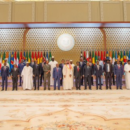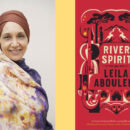Give Kagame a break! A response to Richard Dowden – By Ken Opalo
Ken Opalo wrote an interesting response to Richard Dowden’s piece, Kagame and Congo: how long can he deny Rwandan involvement in the East? on his own blog http://kenopalo.com/ We thought it worth republishing (with Ken’s permission) here.
************************************************************************************
I admire Richard Dowden, Director of the Royal African Society. That said, I disagree with the concluding paragraph in his latest post on the Rwandese military’s involvement in eastern Congo over at African Arguments:
“When a similar situation occurred in Sierra Leone, the International Criminal Court went after the main supporters and funders of the rebel movement, in particular the President of Liberia, Charles Taylor. He was recently sentenced to 50 years in jail for his part in funding the murder and destruction of Sierra Leone. Yet the evidence of Rwanda’s support for warring groups in Congo is as strong – if not stronger – than the evidence that convicted Taylor. But because of the genocide in Rwanda and because both Uganda and Rwanda have good development programmes that western donors love to fund, they will not be criticised. Eastern Congo will continue to suffer.”
Following the damning UN report on Kigali’s adventures in the Congo and concerted campaigns by human rights activists, a number of donor countries, including the US, UK and the Netherlands, have (unwisely) stopped sending aid money to Kigali.
I am inclined to believe that there is truth to the claim that Rwanda supports the M23. But that does not necessarily lead me to conclude that Rwanda should therefore be ostracised by the international community, for the following reasons:
Rwanda faces a real security threat from rebels in eastern Congo. Kagame is a dictator, no doubt about that (he is not your average tin pot dictator, but that’s beside the point for now). But he is also a purveyor of order in this rather volatile region of central Africa. The last thing eastern and central Africa needs is a slow motion civil war, as is currently underway in Burundi. As long as Kinshasa’s incompetence continues to provide a safe launching-base for rebels aiming to depose Kagame, Kigali will have no option but to (rightly so) intervene in eastern Congo. Let us not pretend otherwise.
The insurgencies in eastern Congo are a direct result of Kinshasa’s inability to project power and control. In this instance, I think the Huntonian view that degree of government matters trumps concerns over the type of government. Eastern Congo needs order, period. Attempts at political negotiations with the numerous rebel factions must also be accompanied with strong military action to defeat all the rebel movements that refuse to come to the table. Kinshasa’s continued failure at either attempt leaves Rwanda no option but to step in in light of the observation above.
In a way, the campaign to have Rwanda punished for its adventures in the DRC is emblematic of the problems associated with “mono issue activism” (Remember the danger of a single story?)
This is not a defense of Kagame’s human rights record. Everyone knows it is in the toilet. It is also not a blanket endorsement of foreign interventionism. What it is is an acknowledgement of the very complex context in which Kagame acted, and a consideration of the unintended consequences of cutting aid to Rwanda.
Rwanda’s involvement is a symptom of, and not the cause of, the mess that is eastern DRC.
To those that want Kigali punished, I ask: What would it mean for Rwanda’s and the wider region’s security? What would it mean for economic growth and development for the 12 million Rwandese? What would it mean for infant and maternal mortality that have been on the decline (more rapidly than in most of the developing world) over the last decade?
Punishing Kagame (and the people of Rwanda) for Kinshasa’s ineptitude will not solve the problems in eastern Congo. That is just a fact.
Ken Opalo is a a graduate student of Political Science at Stanford. His research interests include the political economy of development, ethnic politics and leadership accountability, and legislative development in eastern and southern Africa. He blogs at http://kenopalo.wordpress.com/







Interesting and thoughtful response. In the face of such coherence in what we recognise as a complex situation, why, then, did Kagame go to such lengths to deny involvement in the area? Further and while, again, reiterating that we recognise the complexity of the situation, let not Rwanda’s intervention in eastern Congo be a means to achieve darker goals in a dark place …